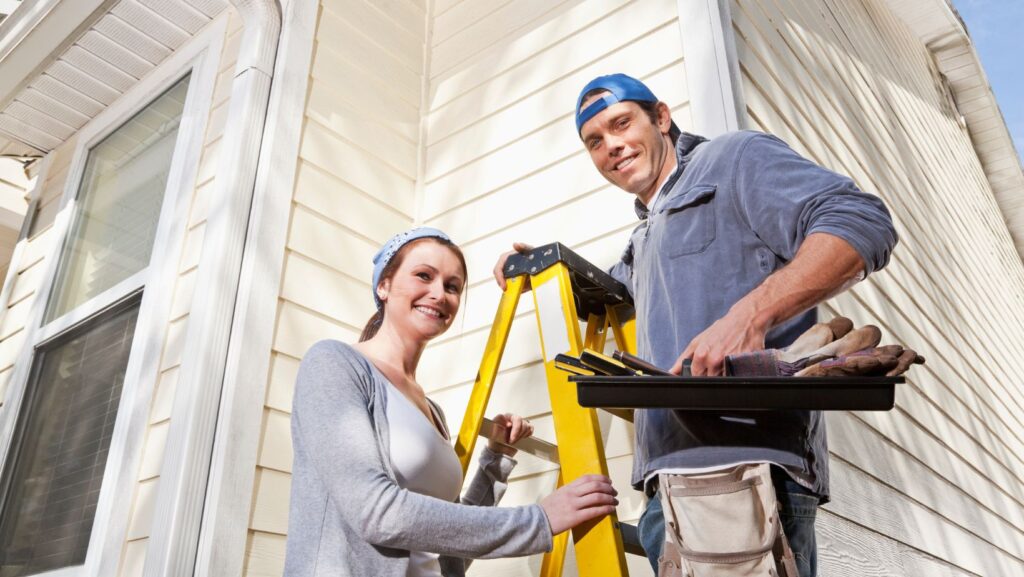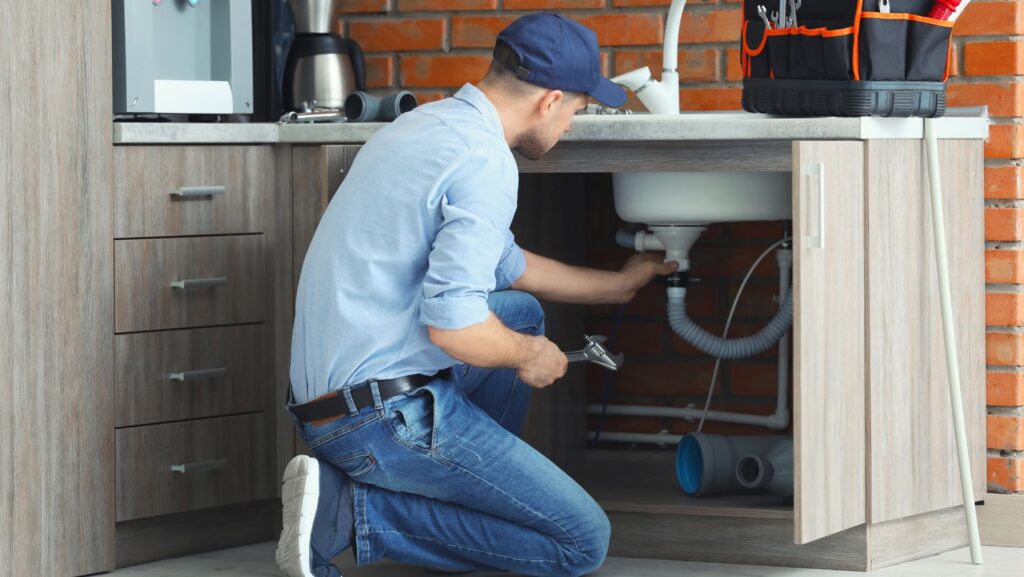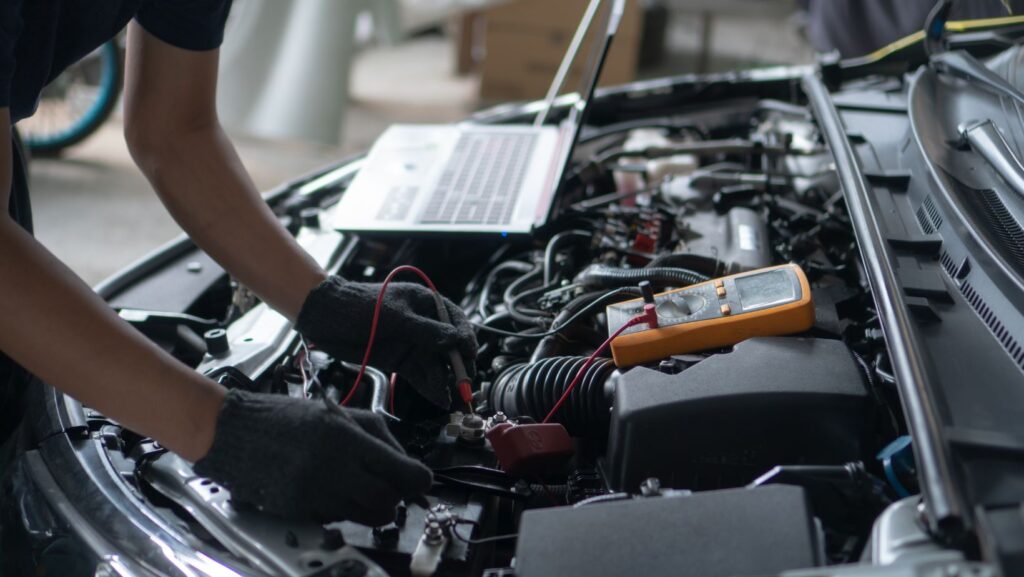 Stepping into the role of a homeowner brings with it a blend of excitement and responsibility. For new homeowners, the task of maintaining a home can seem daunting. From the roof to the foundation, every component of your house needs regular attention to keep it in top shape. This introduction to home maintenance offers practical tips that help ease the transition into homeownership, ensuring that your investment remains secure and your living space stays comfortable. Understanding the basics of home maintenance can significantly reduce future repair costs and enhance your home’s value.
Stepping into the role of a homeowner brings with it a blend of excitement and responsibility. For new homeowners, the task of maintaining a home can seem daunting. From the roof to the foundation, every component of your house needs regular attention to keep it in top shape. This introduction to home maintenance offers practical tips that help ease the transition into homeownership, ensuring that your investment remains secure and your living space stays comfortable. Understanding the basics of home maintenance can significantly reduce future repair costs and enhance your home’s value.
Home Maintenance Tips for New Homeowners
Transitioning into homeownership comes with its fair share of responsibilities; key among them is maintaining your new home. Consistent upkeep not only prevents expensive mishaps but also ensures your space maintains its value and safety.
Regular Inspections
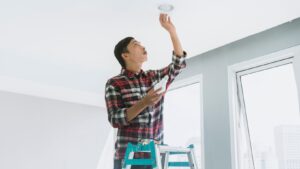 Regular inspections play a crucial role in home maintenance. Homeowners must check critical areas including the roof, HVAC systems, and foundations every six months. These inspections can pinpoint issues early, preventing deterioration that may lead to heftier costs later. For example, spotting missing shingles or water leaks early can save substantial repair costs and protect the home from further damage.
Regular inspections play a crucial role in home maintenance. Homeowners must check critical areas including the roof, HVAC systems, and foundations every six months. These inspections can pinpoint issues early, preventing deterioration that may lead to heftier costs later. For example, spotting missing shingles or water leaks early can save substantial repair costs and protect the home from further damage.
Immediate Repairs
Addressing repairs immediately upon detection is essential for maintaining home integrity. Whether it’s a leaky faucet or a broken window, immediate action mitigates the risk of larger issues evolving from seemingly small problems. Homeowners benefit greatly from fixing minor damages promptly—this practice not only saves money on potential future repairs but also preserves the home’s overall condition and operational efficiency.
Indoor Maintenance Checklist
As new homeowners transition into their roles, maintaining the indoor environment of their home is crucial for ensuring safety, efficiency, and preventing costly repairs. This section provides a focused checklist on key areas such as the HVAC system, plumbing, and electrical systems.
HVAC System Care
Maintaining the HVAC system extends its lifespan and enhances home comfort. Homeowners should replace the air filters every three months to improve air quality and system efficiency. Scheduling a professional HVAC inspection annually guarantees that heating and cooling units operate optimally. Cleaning vents and ensuring that there’s no blockage helps maintain consistent airflow and temperature throughout the home.
Plumbing Maintenance
Regular plumbing checks are essential to avoid water damage and high repair costs. Homeowners should check for leaks under sinks and around toilets periodically. It’s important to clear drains to prevent clogs and use strainers to keep debris out. Inspecting pipes for corrosion or damage annually preserves the integrity of the plumbing system and ensures clean, uninterrupted water flow.
Electrical System Safety
To ensure electrical safety, homeowners should inspect cords and plugs for damage or fraying. Testing smoke detectors and replacing batteries annually increases safety in case of fire. Homeowners are encouraged to maintain clear access to electrical panels for quick shutdowns during emergencies. Inspecting and possibly updating the electrical system by a certified electrician every ten years prevents potential hazards and meets modern safety standards.
Outdoor Maintenance Essentials
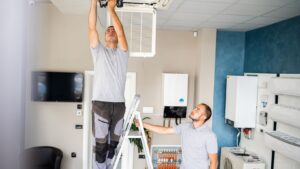 Maintaining the exterior of a home is crucial for new homeowners to prevent costly repairs and enhance their property’s value. This section focuses on essential outdoor maintenance tasks that can ensure long-term durability and aesthetic appeal.
Maintaining the exterior of a home is crucial for new homeowners to prevent costly repairs and enhance their property’s value. This section focuses on essential outdoor maintenance tasks that can ensure long-term durability and aesthetic appeal.
Lawn Care Basics
Effective lawn care involves routine mowing, watering, and fertilizing to promote healthy grass growth. Homeowners should mow their lawn at least once a week during the growing season and water deeply but infrequently to encourage strong root development. Fertilizing twice a year, in spring and fall, helps nourish the lawn and prevents weeds. Additionally, aerating the soil every two to three years allows air and water to penetrate, promoting a lush, green lawn.
Roof and Gutter Upkeep
Regular roof and gutter maintenance is vital to protect a home from water damage. Homeowners should inspect their roof biannually for damaged or missing shingles and address repairs promptly to prevent leaks. Cleaning gutters and downspouts at least twice a year, in the spring and fall, ensures proper water diversion away from the home’s foundation. Installing gutter guards can also reduce debris accumulation and minimize the need for frequent cleanings, safeguarding the roof and gutter system’s integrity.

